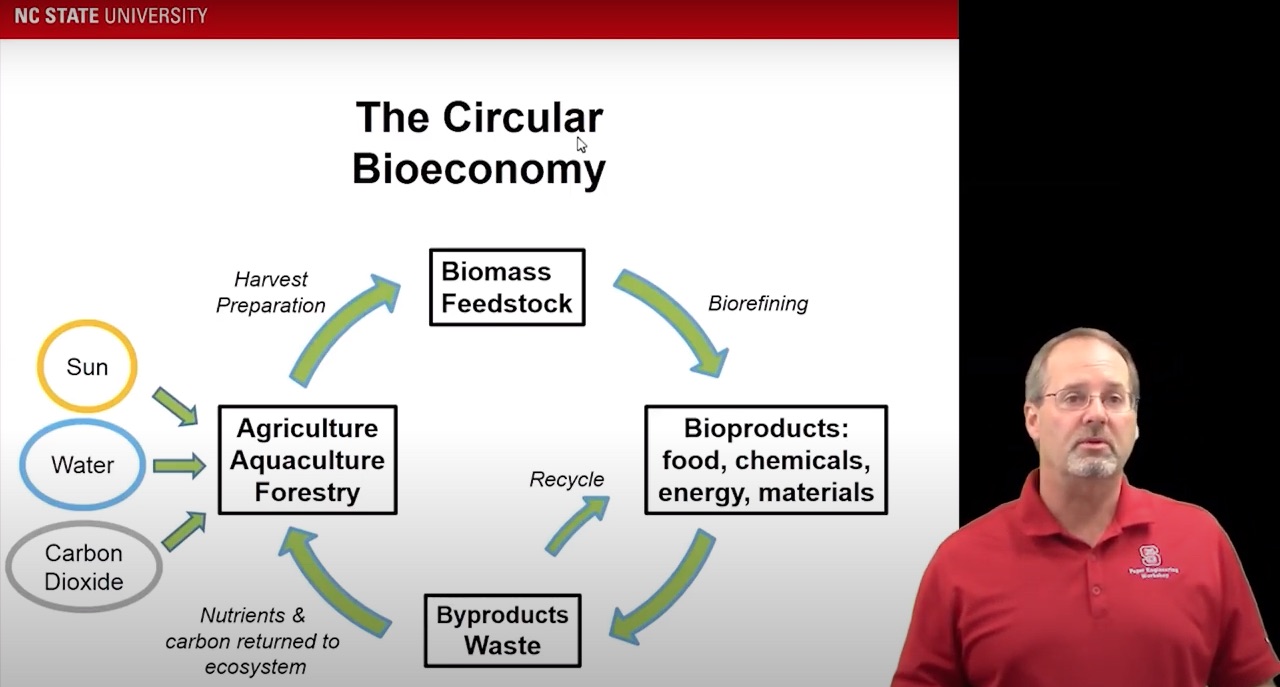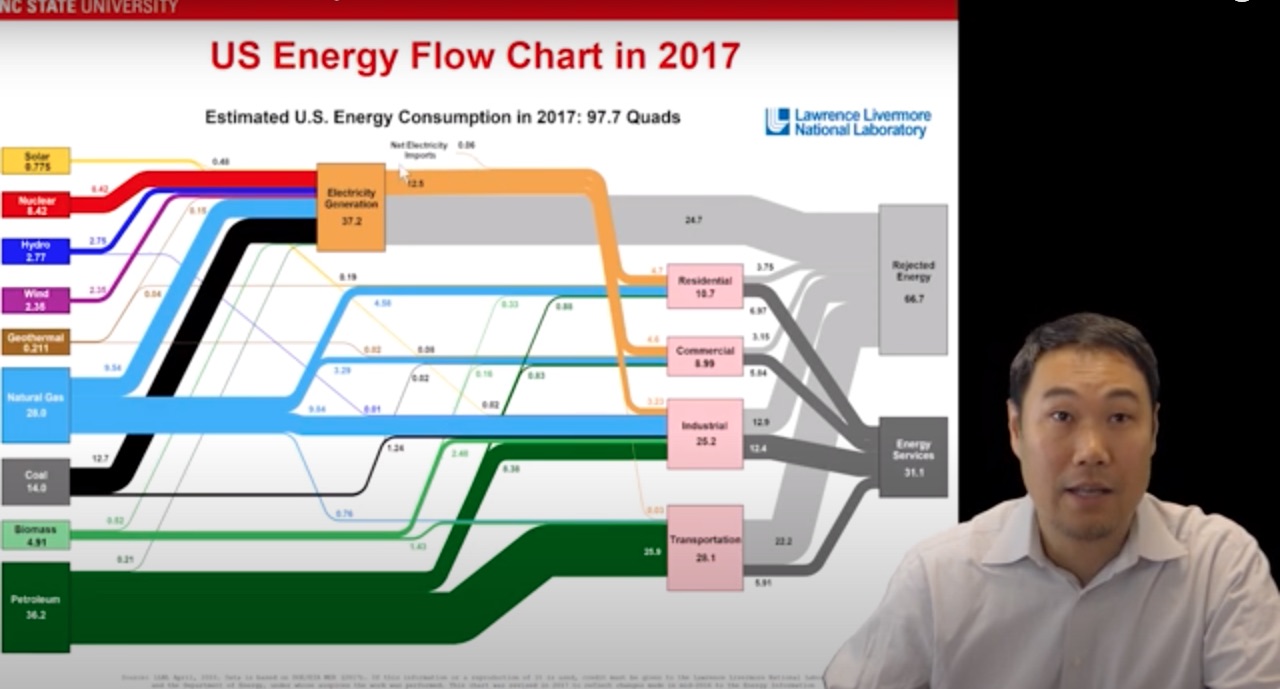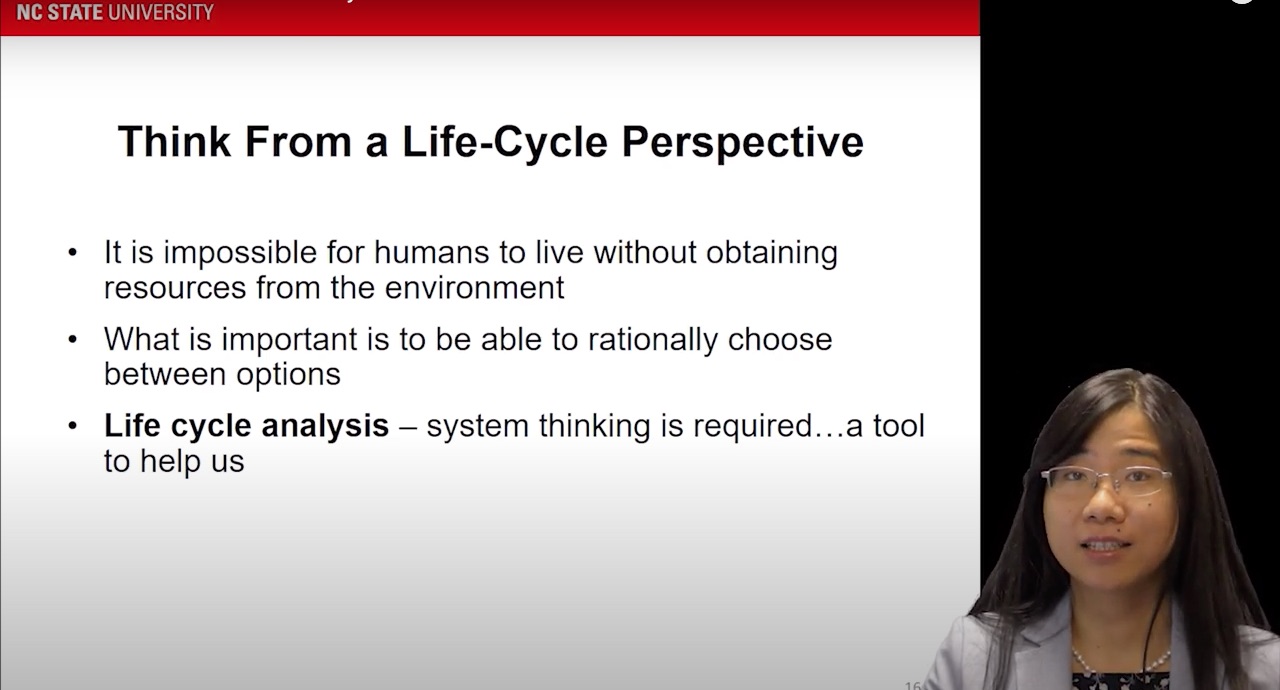Online Courses
Are you interested in learning more about the bioeconomy, bioproducts, and bioenergy?
You’ve come to the right place! Our Massive Open Online Courses (MOOCs) are free, self-paced online courses that will introduce you to the growing bioeconomy sector. We will continue to add more MOOCS as they become available.
The MOOCS will give you a general overview of the bioeconomy. However, if you’d like to explore these topics in more detail, we encourage you to take our 3-credit courses for degree and non-degree seeking students through the Department of Forest Biomaterials at NC State.
To access the MOOCS:
- Go to https://campus.extension.org/
- Create a login account
- Search for the course title (e.g. “Sustainable Bioeconomy” or “Biomass Conversion”)
- Select “Enroll Me”
MOOC #1: The Sustainable Bioeconomy
Instructors: Dr. Richard Venditti and Shana McAlexander

The Sustainable Bioeconomy course examines the current and future opportunities and challenges of bioproducts and bioenergy in society. This course explores relationships between society’s economic demand for inexpensive energy and products and our responsibility to produce these products in environmentally and socially responsible ways. Students explore a range of bioproduct categories including biofuels, virgin and recycled paper and wood products, and advanced biomaterials. A panel of instructors from multiple disciplines and bioeconomy stakeholders will share their diverse perspectives and experiences in the bioeconomy. Students will learn about careers available in the growing bioeconomy sector and the knowledge and skills necessary for these jobs.
MOOC #2: Strategic Business Analysis for the Bioeconomy

Instructors: Dr. Ronalds Gonzalez and Antonio Suarez
This course examines the evolution of the global bioeconomy and major drivers behind its growth while providing detailed business and financial training. By understanding the forces behind the growth of the bioeconomy, students can identify features in products and services that can potentially capture value (profit) in this sector. The course provides basic to complex conversion economics and financial concepts as well as business tools for non-financial trained students. At the end of the course, students will be capable of analyzing and screening opportunities for profit while promoting the adoption of bio-based products and thus meet the growing demand for sustainable goods.
MOOC #3: Biomass Conversion for Bioproducts and Bioenergy
Instructors: Dr. Sunkyu Park and Joe Sagues

The term biomass encompasses any renewable, organic material of recent biological origin, such as trees, crops, agricultural and forestry residues, and municipal solid waste. The course will cover the fundamental concepts of industrial biomass conversion processes such as aerobic fermentation, anaerobic digestion, pyrolysis, and gasification. The course will require basic math and chemistry skills. You should expect this course to: Illuminate the current and emerging technologies for creating sustainable products from renewable biomass resources; Examine the basic chemistry of biomass resources and their conversion to valued products such as fuels, plastics, and fibers, to name a few; Introduce concepts critical to industrial process design, modeling, and techno-economic analysis; Highlight careers available in the growing bioeconomy sector and the knowledge and skills necessary for these jobs.
MOOC #4: Environmental Life Cycle Analysis
Instructors: Dr. Yuan Yao and Dr. Richard Venditti

Societal needs always have a consequence with regards to the environment. The efficient use of the world’s resources is key to sustainability. Several options exist when trying to determine which method best serves mankind and its environment. Life cycle analysis (LCA) methods offer a systematic approach to providing guidance in these decisions. Mastering LCA techniques is an integral part of a student’s preparation for a career that is professionally, environmentally, and socially responsible. This course is an overview of the various aspects of conducting and interpreting an environmental life cycle analysis on a product or service. Students will learn how to construct a life cycle analysis goal and scope, a life cycle inventory, a life cycle assessment, and an interpretation. Skills in the critique and communication of a life cycle analysis will be developed. The course will have an emphasis on systems thinking. The course is targeted for students in with a background in science or engineering.